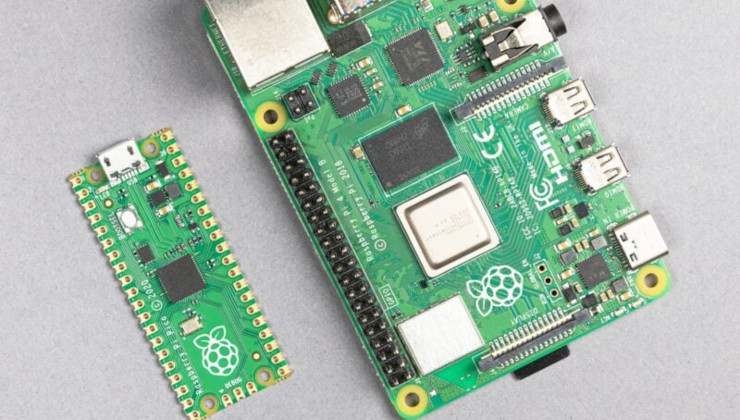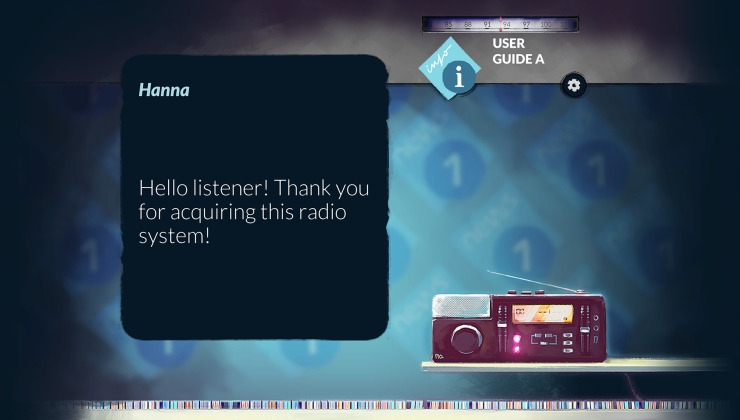It's being widely reported today that in the decade-long battle of Google vs Oracle that the US Supreme Court has now finally ruled in Google's favour. This is huge, for Linux and Linux Gaming too.
To prevent being too long-winded, I won't go deep into the technical details. The basics of the case were that Oracle sued Google going back into 2010 over the Java API. This was because Google did a reimplementation of it for early versions of Android and Oracle threw the lawyers around claiming doing so infringed on their copyright.
Many developers across the world will now be letting out a huge relief sigh, as the Supreme Court has ruled in Google's favour. Why is this so important then? Well, this right from the PDF of the statement should explain it pretty clearly:
Google’s copying of the Java SE API, which included only those lines of code that were needed to allow programmers to put their accrued talents to work in a new and transformative program, was a fair use of that material as a matter of law.
Not just that though, it goes even further to mention this:
Finally, given programmers’ investment in learning the Sun Java API, to allow enforcement of Oracle’s copyright here would risk harm to the public. Given the costs and difficulties of producing alternative APIs with similar appeal to programmers, allowing enforcement here would make of the Sun Java API’s declaring code a lock limiting the future creativity of new programs. Oracle alone would hold the key. The result could well prove highly profitable to Oracle (or other firms holding a copyright in computer interfaces). But those profits could well flow from creative improvements, new applications, and new uses developed by users who have learned to work with that interface. To that extent, the lock would interfere with, not further, copyright’s basic creativity objectives.
Really, it doesn't get much clearer than that does it? If this ruled in Oracle's favour, it would have had far-reaching implications for the entire software industry and end up causing some to hold far too much power over what people are able to actually create. Basically, it would have handed out monopolies. Thankfully, we don't need to worry about it now.
So, hopefully and as a matter of fair use by law, projects like Wine (and so Steam Play Proton too) should technically be clear of any uncertainty around the APIs being reimplemented. Good news!
Quoting: The_Aquabatthis article never mentions which country's Supreme Court, many countries have Supreme Court, it's not obvious, had to click on the link to find out.Happy to make it clearer. Have done so. In future, we do have the corrections feature you could have used to send a proper note on this.
Quoting: ArdjeThis outcome is good for everyone, even for Oracle. Now it's obvious that it's not dangerous to use java interfaces anywhere and hence to use java anywhere.It never was dangerous to use them or re-implement. There are several implementations of Java: OpenJ9, Azul, OpenJDK (RI), Excelsior JET
Reminder, that Android doesn't use Java SE, Google only implemented some parts of Java SE: "Android Java Language" is a Frankenstein made by parts of Java 6 and Java 7; "Android Java Standard Library" doesn't implement many parts of Java SE. For example, NIO is part of Java SE 7, but "Android Java" doesn't implement it; lambdas are not implemented properly, there is 3rd party compiler plugin that "de-sugars" them, but it doesn't cover all use cases.
Many libraries ended up with 2 versions - version for Java and version for Android.
Android destroyed Java for mobile and affects java for desktop. It only harms.
An oracle is a person or agency considered to provide wise and insightful counsel or prophetic predictions, most notably including precognition of the future, inspired by deities. As such, it is a form of divination.Well... they didn't predict this verdict did they :smile:
Last edited by Lofty on 7 Apr 2021 at 3:00 am UTC
We're just lucky the bigger plutocratic guns were on our side on this particular occasion.
Quoting: DerpFoxJust to be sassy, I've never heard of that case. Really, first time I hear about it. That's also why I love this website it talks about that kind of things.There are more details about the ruling and some of the history of the case [here](https://arstechnica.com/tech-policy/2021/04/how-the-supreme-court-saved-the-software-industry-from-api-copyrights/), for those that are interested.
They thought Java would be a meal ticket and they very nearly managed it.
Nice to see some common sense from the American courts.
Quoting: Purple Library GuyI'm very pleased with this outcome. As to why we got it, there is a cynical side of me saying "Ah! The Supremes concluded Google's pockets were deeper than Oracle's!"My exact reaction to this.
We're just lucky the bigger plutocratic guns were on our side on this particular occasion.
What we can all take from this ruling, is that Google wields more influence, and have better lobbyists, than Oracle does.
As with the time that Google (et al.) was "pro" Net Neutrality, we can praise ourselves lucky that their interests happened to align with those of the general public (insofar as the 'general' public cares about Java and Net Neutrality).
Companies ain't our friends, and they don't give two sh1ts about what benefits *us*.
Quoting: AppelsinThe Supreme Court is not congress. There are no campaigns and no lobbying. The Supreme Court makes its decisions based on [legal briefs](https://www.supremecourt.gov/search.aspx?filename=/docket/docketfiles/html/public/18-956.html) and [oral argument](https://apps.oyez.org/player/#/roberts11/oral_argument_audio/25092). In fact, in this case, there were many more organizations and individuals filing Amicus briefs on behalf of Oracle than of Google, including the United States government. It doesn't get much more powerful than that.Quoting: Purple Library GuyI'm very pleased with this outcome. As to why we got it, there is a cynical side of me saying "Ah! The Supremes concluded Google's pockets were deeper than Oracle's!"My exact reaction to this.
We're just lucky the bigger plutocratic guns were on our side on this particular occasion.
What we can all take from this ruling, is that Google wields more influence, and have better lobbyists, than Oracle does.
As with the time that Google (et al.) was "pro" Net Neutrality, we can praise ourselves lucky that their interests happened to align with those of the general public (insofar as the 'general' public cares about Java and Net Neutrality).
Companies ain't our friends, and they don't give two sh1ts about what benefits *us*.
Quoting: KristianNo campaigns, true. No lobbying? You are living in a different age. I have seen several exposes of members of the Supreme Court getting schmoozed and wined and dined and taken to "conferences" in very posh vacation spots and so on and so forth. Most of it isn't even illegal; the US has some odd oversights in terms of how you are and aren't allowed to bribe judges.Quoting: AppelsinThe Supreme Court is not congress. There are no campaigns and no lobbying.Quoting: Purple Library GuyI'm very pleased with this outcome. As to why we got it, there is a cynical side of me saying "Ah! The Supremes concluded Google's pockets were deeper than Oracle's!"My exact reaction to this.
We're just lucky the bigger plutocratic guns were on our side on this particular occasion.
What we can all take from this ruling, is that Google wields more influence, and have better lobbyists, than Oracle does.
As with the time that Google (et al.) was "pro" Net Neutrality, we can praise ourselves lucky that their interests happened to align with those of the general public (insofar as the 'general' public cares about Java and Net Neutrality).
Companies ain't our friends, and they don't give two sh1ts about what benefits *us*.
And most of them belong or belonged to the Federalist Society, which is fundamentally a right wing lobby group of lawyers and judges. The Supremes, in short, are only partly the ones being lobbied--in part they are lobbyists themselves, from way back. If they were the kind of people who went around trying cases based on the merits of the briefs in front of them, they wouldn't have been appointed to the Supreme Court.
Last edited by Purple Library Guy on 7 Apr 2021 at 5:08 pm UTC
Quoting: Purple Library GuyWhat you are saying is not very specific. But which conferences in which vacation spots determined the outcome of this case? It is a rather extreme position to claim that legal arguments have nothing to do with it. The Federalist Society is much maligned, but more to the point several of the justices in this majority have never been a member of the Federalist Society. (And there certainly plenty of left-wing parallels to the Federalist Society) There are plenty of cases that simplistic theories of the court being "[pro-business" or similar cannot explain](https://reason.com/volokh/2021/03/09/testifying-on-whats-wrong-with-the-supreme-court-the-big-money-assault-on-our-judiciary/). This case incidentally being one of them.Quoting: KristianNo campaigns, true. No lobbying? You are living in a different age. I have seen several exposes of members of the Supreme Court getting schmoozed and wined and dined and taken to "conferences" in very posh vacation spots and so on and so forth. Most of it isn't even illegal; the US has some odd oversights in terms of how you are and aren't allowed to bribe judges.Quoting: AppelsinThe Supreme Court is not congress. There are no campaigns and no lobbying.Quoting: Purple Library GuyI'm very pleased with this outcome. As to why we got it, there is a cynical side of me saying "Ah! The Supremes concluded Google's pockets were deeper than Oracle's!"My exact reaction to this.
We're just lucky the bigger plutocratic guns were on our side on this particular occasion.
What we can all take from this ruling, is that Google wields more influence, and have better lobbyists, than Oracle does.
As with the time that Google (et al.) was "pro" Net Neutrality, we can praise ourselves lucky that their interests happened to align with those of the general public (insofar as the 'general' public cares about Java and Net Neutrality).
Companies ain't our friends, and they don't give two sh1ts about what benefits *us*.
And most of them belong or belonged to the Federalist Society, which is fundamentally a right wing lobby group of lawyers and judges. The Supremes, in short, are only partly the ones being lobbied--in part they are lobbyists themselves, from way back. If they were the kind of people who went around trying cases based on the merits of the briefs in front of them, they wouldn't have been appointed to the Supreme Court.
If legal briefs had no impact on the outcome of cases, the outcome of cases would be vastly different than they are. It is simply far far from the case that those with the most money always win. Supreme Court justices rule against lawyers they worked with in private practice, their own former law clerks, the administrations that appointed them, their side of the political aisle etc etc all the time.
Also it is often the case that the law has a pro-business/big money bias, such that faithfully following the law requires a judge or justice to rule in a pro-business manner. So a pro-business result is NOT in and of itself evidence of bias on part of the judge or justice.
I am not saying that other factors can never have an influence, of course they can and probably do. I am only saying that they are not as all encompassing as you think they are.
Quoting: KristianYou have some points, but first, the idea that there are left wing parallels to the Federalist Society (which, really, there aren't--there are liberal parallels to the Federalist Society) just means not all justices have the same axes to grind, not that any of them are actually neutral. So it doesn't invalidate my point.Quoting: Purple Library GuyWhat you are saying is not very specific. But which conferences in which vacation spots determined the outcome of this case? It is a rather extreme position to claim that legal arguments have nothing to do with it. The Federalist Society is much maligned, but more to the point several of the justices in this majority have never been a member of the Federalist Society. (And there certainly plenty of left-wing parallels to the Federalist Society) There are plenty of cases that simplistic theories of the court being "[pro-business" or similar cannot explain](https://reason.com/volokh/2021/03/09/testifying-on-whats-wrong-with-the-supreme-court-the-big-money-assault-on-our-judiciary/). This case incidentally being one of them.Quoting: KristianNo campaigns, true. No lobbying? You are living in a different age. I have seen several exposes of members of the Supreme Court getting schmoozed and wined and dined and taken to "conferences" in very posh vacation spots and so on and so forth. Most of it isn't even illegal; the US has some odd oversights in terms of how you are and aren't allowed to bribe judges.Quoting: AppelsinThe Supreme Court is not congress. There are no campaigns and no lobbying.Quoting: Purple Library GuyI'm very pleased with this outcome. As to why we got it, there is a cynical side of me saying "Ah! The Supremes concluded Google's pockets were deeper than Oracle's!"My exact reaction to this.
We're just lucky the bigger plutocratic guns were on our side on this particular occasion.
What we can all take from this ruling, is that Google wields more influence, and have better lobbyists, than Oracle does.
As with the time that Google (et al.) was "pro" Net Neutrality, we can praise ourselves lucky that their interests happened to align with those of the general public (insofar as the 'general' public cares about Java and Net Neutrality).
Companies ain't our friends, and they don't give two sh1ts about what benefits *us*.
And most of them belong or belonged to the Federalist Society, which is fundamentally a right wing lobby group of lawyers and judges. The Supremes, in short, are only partly the ones being lobbied--in part they are lobbyists themselves, from way back. If they were the kind of people who went around trying cases based on the merits of the briefs in front of them, they wouldn't have been appointed to the Supreme Court.
If legal briefs had no impact on the outcome of cases, the outcome of cases would be vastly different than they are. It is simply far far from the case that those with the most money always win. Supreme Court justices rule against lawyers they worked with in private practice, their own former law clerks, the administrations that appointed them, their side of the political aisle etc etc all the time.
Also it is often the case that the law has a pro-business/big money bias, such that faithfully following the law requires a judge or justice to rule in a pro-business manner. So a pro-business result is NOT in and of itself evidence of bias on part of the judge or justice.
I am not saying that other factors can never have an influence, of course they can and probably do. I am only saying that they are not as all encompassing as you think they are.
To be fair, at the level the Supreme Court is operating, in the end it's not tenable to have a "just the facts of this case and the printed words of the specific law" approach--the Supreme Court justices are making decisions which will shape society. They'd better have some ideas about the consequences to society of their rulings. Their work is inevitably political; they should bring some political understanding to it.
Nonetheless, the US Supreme Court has certainly made plenty of rulings which are both not particularly implied by the texts they're supposedly pulling the rulings from, and very much tending to award privileges to the wealthy and corporations while denying rights to more ordinary people. Citizens United is perhaps the most notorious, but there have been a whole series of rulings in which the very same judges have taken the position that cash is speech and must be protected against all limitations on its use, but that actual speech is not necessarily speech or, even if it is, may not require protection--hence corporations must not be restricted in their ability to buy elections, but protests can be restricted to "free speech zones" and so on and so forth. For at least the last 20 years the Supreme Court has also strongly tended to find that while corporations must be given all the rights of persons, for actual persons there are lots of very important reasons not to give them all the rights of persons, particularly when the police have an interest in circumscribing them. Note that I'm not saying there's no case for circumscribing rights--I'm just saying there's a certain systematic variation to the Supremes' vision of how uncircumscribed rights need to be.
And while lobbying may not always be effective, such that the Supreme Court judges (who, while they may be bribable, are almost impossible to pressure) may just decide to vote based on their real understanding of any given case, lobbying is nonetheless very much present--and I presume they wouldn't bother if it didn't work. So your original claim that "there is no lobbying" is simply false and I'm glad you added some nuance.
Overall, on any given case it is certainly possible the Supremes will decide on the merits in some relatively disinterested fashion. But it is by no means something you can expect, or rely on.








 How to setup OpenMW for modern Morrowind on Linux / SteamOS and Steam Deck
How to setup OpenMW for modern Morrowind on Linux / SteamOS and Steam Deck How to install Hollow Knight: Silksong mods on Linux, SteamOS and Steam Deck
How to install Hollow Knight: Silksong mods on Linux, SteamOS and Steam Deck